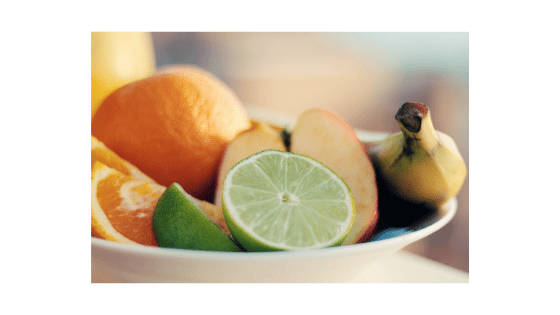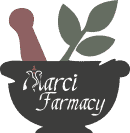
A Healthy Gut = Greater Immunity
With COVID-19 we are even more concerned about maintaining our immunity and staying healthy. We all know how important Vitamin C, Zinc, and other powerful antioxidants such as Selenium and Glutathione are for strengthening our immune system. But did you know that our best line of defense is our diet and a healthy gut?! Yup, that’s right!! The gastrointestinal tract is 80% of our immune system. 80%!!! When inflammation is present, the tight junctions and intestinal mucosa can become damaged and inflamed causing gaps in the lining of the GI tract. Then toxic byproducts in the digestive tract can be absorbed into the bloodstream and carried on to the liver. The molecules of food and toxins are absorbed through the GI mucosa and then eventually affect systems throughout the body causing inflammation in our joints, skin disorders, autoimmune conditions, and food sensitivities. Inflammatory bowel disease or IBD is a breakdown of the GI tract lining which greatly impacts our immune system.
Diet plays an important role in downregulating the unresolved inflammation of IBD while optimizing healing and immunity. Thus, dietary and nutrient strategies have been studied as the primary treatment in IBD.
Dietary Intervention
What NOT to Eat
A high-animal fat, high sugar, and low-fiber diet are pro-inflammatory and have been implicated in the development of IBD. It’s highly plausible that this kind of diet, as an environmental factor may contribute to the pathogenesis of this disease. Possible link to an exaggerated immune response to an environmental trigger in the gut microbiota.
Potential Environmental Triggers include:
•Gluten
•Food Sensitivity
•Nutrient Deficiency
•Stress and Hormone Imbalance
•Dysbiosis – “imbalance” in the gut microbial community within the GI tract that is associated with disease and inflammation
•Infections
•Toxins
What TO Eat
A Diet rich in antioxidants, omega-3 fatty acids, and Vitamin D, all play an essential role in healing, immune function, and downregulating inflammation.
Antioxidants – think bright colorful fruits and vegetables
Omega-3 fatty acids – think walnuts and salmon
Vitamin D – think pasture-raised poultry and eggs
Vitamin D – In ‘The Journal of Immunology’, March 1, 2012, researchers examined the specific mechanisms by which vitamin D might act on immune and inflammatory pathways in a positive manner.
That’s why among the other vitamins and minerals you may have been hearing about in keeping us healthy and preventing infection, Vitamin D is so vital to our immunity.
More recent studies have found those with a higher vitamin D level, are less likely to contract COVID-19 infection or have a more active recovery post infection vs those with deficient or insufficient vitamin D levels. Getting your vitamin D level checked may be in order and aiming for a level closer to 40-60 ng/mL is ideal. I recommend a level between 50-80 ng/mL.
Foods rich in polyphenols (garlic, onions, oranges, grapes, green tea) and short-chain fatty acids (SCFAs) such as butyrate (grass fed butter, high fiber foods such as whole grains, fruits – apples & pears, vegetables – broccoli, leafy greens) can reduce/downregulate inflammatory cytokines such as NFkB activity and become possible nutraceutical therapeutic modalities for IBD.
Healing the gut and treating IBD
Implementation of the 4R Program:
Remove – remove trigger foods, toxins, and pathogens, essentially an elimination diet or eliminating the foods that trigger some of your symptoms (headaches, fatigue, body & joint aches/pains, etc.)
- Eliminate gluten, corn, shrimp, and dairy; eat organic as much as possible. Avoid processed foods, preservatives and additives. Individuals with intolerance to certain foods should try to avoid specific triggers in order to minimize symptoms.
Repair – repairing the gut mucosa with glutamine
- L-glutamine 9 g, ¾ tsp. by mouth three times daily in between meals. Glutamine an amino acid is a source of energy for intestinal epithelial cells, and it stimulates proliferation of intestinal epithelial cells.
Replace – replacing enzymes, hydrochloric acid, and fiber (prebiotics) to aid in digestion
- Proteolytic enzyme and antioxidant formula, 3 capsules by mouth three times a day in between meals
- Prebiotic foods – i.e., onions, garlic, and bananas
Reinoculate – reinoculate the gut with beneficial bacteria (i.e.) probiotics
Three Probiotic Options (any of the 3 below)
- Probiotic 15 billion CFUs, 1 capsule by mouth daily away from food
- Bifidobacterium Probiotic Strains 10 billion CFUs, 1 capsule by mouth daily away from food
- Saccharomyces boulardii 5 billion CFUs, 1 capsule by mouth daily away from food – Saccharomyces boulardii > nonpathogenic, probiotic yeast; protects the intestinal epithelial cells and supports intestinal barrier function and directly inhibits colonization of harmful bacteria.
Combining probiotics and prebiotics as synbiotics (synbiotics refer to food ingredients or dietary supplements combining probiotics and prebiotics in a form of synergism) may play a role in the treatment of IBD.
Further Gastrointestinal Supplemental Support
Fish oil (omeg-3 fatty acids) 2-3 gm up to three times a day – immunomodulatory and anti-inflammatory
Vitamin D 5,000 – 25,000 IU/day & Calcium 1,000 – 1,200 mg/day
Zinc Carnosine 75 mg by mouth daily to twice daily – chewable preferred
Other fat-soluble vitamins may be deficient such as vitamin A, E, & K. Minerals other than iron may be deficient in IBD, and these include magnesium, selenium, zinc, and copper. Zinc is commonly deficient in Crohn’s Disease and copper status is unknown. Selenium is an essential cofactor for glutathione peroxidase, which helps detoxify hydroxyl free radicals that are overabundant in inflamed tissues.
I prefer you get your nutrients from food vs supplements, so I have included two tasty recipes packed with plenty of vitamin D, omega-3 fatty acids, and antioxidants to keep your GI tract and immune system healthy:
Tasty Buddha Bowl Salad Recipe
Here is my COVID Immune Support Protocol through Full Script. As always you receive 10% discount on any supplements you purchase through my Full Script Dispensary.
Stay Safe! Stay Healthy!
References
Kohlstadt I, ed. Advancing Medicine with Food and Nutrients. 2nd Ed. Boca Raton, FL: CRC Press; 2012.
Zhang Y, Leung D.Y.M, Richers B.N, Liu Y, Remigio L.K, Riches D.W, and Goleva E. Vitamin D Inhibits Monocyte/Macrophage Proinflammatory Cytokine Production by Targeting MAPK Phosphatase-1. J Immunol. 2012;188(5):2127-2135. DOI: https://doi.org/10.4049/jimmunol.1102412
Yanuck SF, Pizzorno J, Messier H, Fitzgerald KN. Evidence Supporting a Phased Immuno-physiological Approach to COVID-19 From Prevention Through Recovery. Integrative Medicine. 2020;19(S1):8-35. http://imjournal.com/oa/evidence_supporting-a_phased_immuno-physiological_approach_to_covid-19_from_prevention_through_recovery/. Accessed May 18, 2020.
